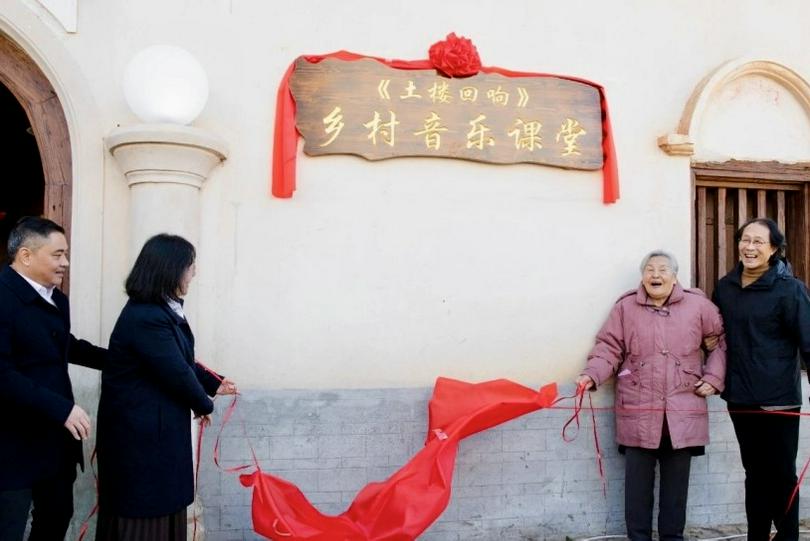Fifteen years ago, I had the privilege of attending a performance of the large-scale symphonic poem The Echoes of Hakka Earth Building at the Fujian Grand Theatre, conducted by Professor Zheng Xiaoying, the first female conductor after the founding of the People‘s Republic of China. At the age of 80, her conducting left a lasting impression on me, and the performance received prolonged applause from the audience. The Echoes of Hakka Earth Building was performed 77 times across 12 countries in Asia, Europe, North America, and Australia, setting the highest record for large-scale symphonic performances in China.
The symphonic work The Echoes of Hakka Earth Building is based on Yongding Hakka Tulou, using the history and development of the Tulou as its narrative thread. The music incorporates symphonic elements, folk song solos, leaf whistles, and large choirs to depict the arduous journey of the Hakka people, who migrated from Central China to the western part of Fujian. Their unity, mutual aid, and perseverance in the face of hardship are vividly portrayed, as they once struggled for survival and development.
Recently, in a video on a social media platform for musicians, I once again saw the 96-year-old Zheng Xiaoying explained the creation story of The Echoes of Hakka Earth Building to the local people at the "Zhensheng Lou" (The Echoes of Hakka Earth Building Tower) in her hometown of Yongding.
In the video, Professor Zheng shared that her grandfather had been a pastor in the area. Growing up in a Christian family, she was accustomed to attending church services. As her family expanded, they gradually moved away from the Tulou to explore a larger world, with the Tulou remaining etched in Professor Zheng’s heart.
According to reports, Zheng Xiaoying's grandfather, Zheng Jinlu, converted to Christianity at a young age and became a pastor in Yongding, Western Fujian. He supported the education of his five children, two of whom, Zheng Hua and Zheng Wei, were sent to the United States to study under the Boxer Indemnity Scholarship Program. Zheng Xiaoying’s father, Zheng Wei, studied agricultural economics at Columbia University in New York and later earned a Ph.D. in business from the University of Pennsylvania. After returning to China, he became the general secretary of the Shanghai YMCA. Following the establishment of the People’s Republic of China, he was invited to teach English at Shanghai International Studies University, leaving a profound impact on Zheng Xiaoying’s upbringing and development.
"It was quite a coincidence," she recalled. "In January 2000, I returned to Yongding to trace my roots. When I saw the Tulou, I was deeply moved, finding that such an imposing structure stood in such a remote place." At that moment, she thought, how wonderful it would be to perform a symphony about the Hakka people of the Tulou at the 16th World Hakka Conference. This idea eventually led to the creation of the Echoes of Hakka Earth Building.
Later, Zheng transformed the Tulou that had once astonished her into a museum and rural music classroom, which was dedicated to showcasing the cultural heritage of the Fujian Tulou, a UNESCO World Heritage site. The museum also displayed two main themes: her personal growth journey and the story behind the creation of The Echoes of Hakka Earth Building.
(Originally published by the Gospel Times, the article has been edited under permission and the author is a believer at a church in Fuzhou, Fujian. )
- Translated by Abigail Wu












